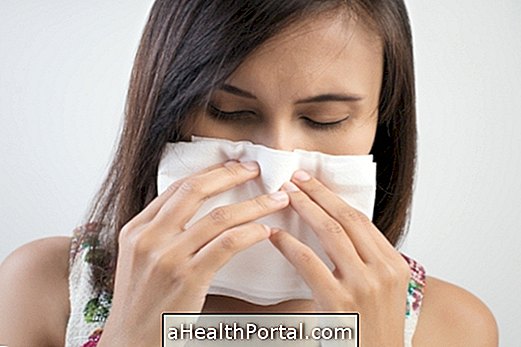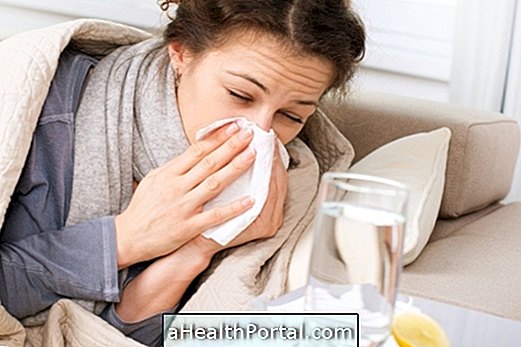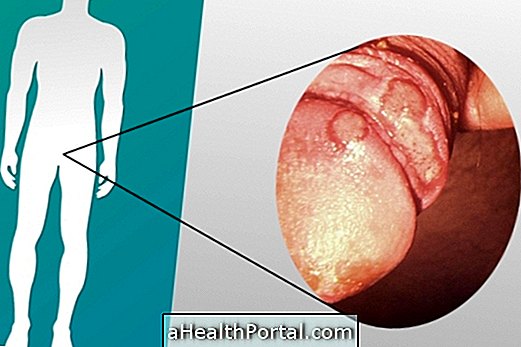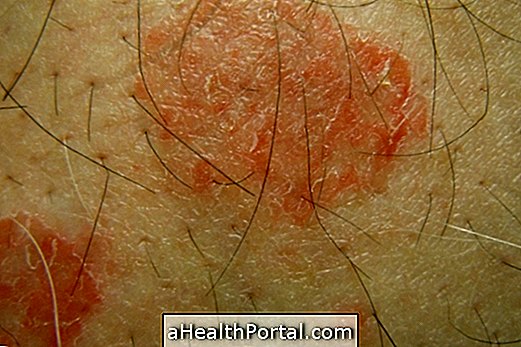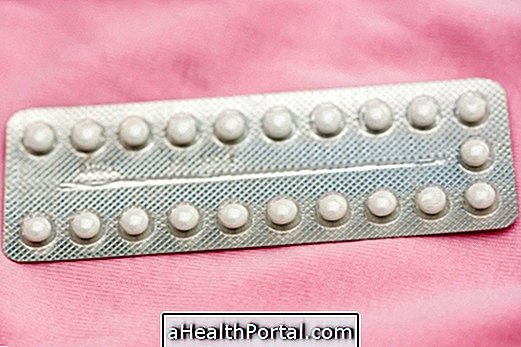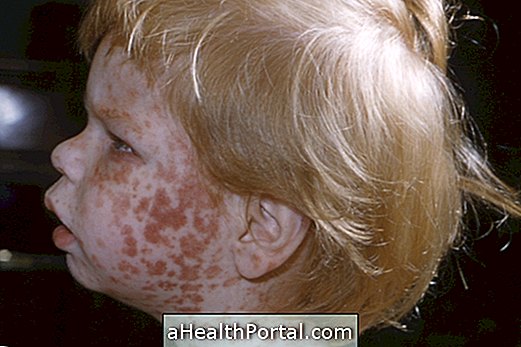Bacterial pneumonia is a serious infection of the lungs that causes symptoms such as coughing with phlegm, fever and difficulty breathing, which comes after a flu that does not go away or worsens over time.
Generally, bacterial pneumonia is caused by bacteria in Streptococcus pneumoniae ; however, other aetiological agents such as Klebsiella pneumoniae, Staphylococcus aureus, Haemophilus influenzae, Legionella peumophila may also lead to the onset of the disease.
Bacterial pneumonia is usually not contagious and can be treated at home with the ingestion of antibiotics prescribed by the doctor. However, in the case of infants or elderly patients, hospital admission may be necessary.
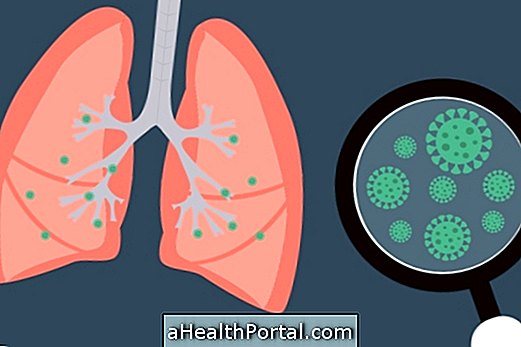
Transmission of bacterial pneumonia
The transmission of bacterial pneumonia is very difficult and therefore the patient does not contaminate healthy people. It is usually more common to get bacterial pneumonia for:
- Accidental entry of bacteria into the lung from the mouth by gagging with food, for example;
- Worsening of a flu;
- Bacteria coming from another infection somewhere in the body.
Thus, to prevent the onset of pneumonia, it is recommended that you wash your hands often, avoid staying indoors with poor air ventilation such as shopping malls and movie theaters, and take the flu vaccine, especially for children and the elderly.
In addition, adults at increased risk of infection, such as patients with asthma, high blood pressure, COPD and weakened immune systems may also make the Prevenar 13 vaccine, which protects against the disease. Learn more about this vaccine.

How To Treat Bacterial Pneumonia
Treatment of bacterial pneumonia can be done at home with rest and use of antibiotics such as Amoxicillin, Levofloxacin or Ceftriaxone for 7 to 14 days, according to the medical recommendation.
However, in some cases, the doctor may recommend that the treatment be supplemented with daily sessions of respiratory physiotherapy to remove secretions from the lungs and facilitate breathing.
Even in the most severe cases, when pneumonia is at a later stage or in the case of infants and elderly patients, it may be necessary to be admitted to hospital for antibiotics directly into the vein and to receive oxygen. See remedies used, signs of improvement and worsening, and necessary care in: Treatment of bacterial pneumonia.
Symptoms of Bacterial Pneumonia
Symptoms of bacterial pneumonia may include:
- Cough with lots of catarrh;
- High fever, above 39º;
- Difficulty breathing;
- Shortness of breath;
- Chest pain.
The diagnosis of bacterial pneumonia can be made by a general practitioner or a pulmonologist by examinations, such as chest X-rays, computed tomography of the chest, blood tests or phlegm examination, for example.
If you consider this information interesting, see more about pneumonia in:
- Symptoms of pneumonia
- Childhood pneumonia
- What is SARS: Acute Respiratory Syndrome
